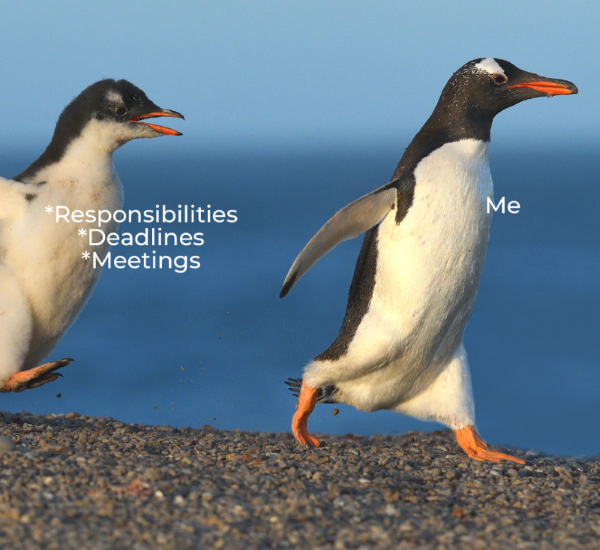Why Guest Blogging Won’t Work for Your Business
You already know that guest blogging is an awesome technique to build and grow relations by generating incoming links. It’s 5 times more effective to grow a website audience and traffic by publishing posts on other websites than on your own. Even further, it’s the only white-hat SEO technique left out there that allows you to legitimately grow incoming links and audience.

Yet, there are mistakes that will absolutely sabotage your guest blogging efforts.
1. Spammy anchor text links leading to your website
You include keyword-rich anchor text in the body of the blog post that has little or no relevance to the content of your article.
Result: Do your homework and make sure the article is well written and is published on websites where your target audience is.
2. Paying for guest posts or links
You want the best, so you think that if you pay for content, then it will be the best.
Result: Google will recognize flagrant abuse and guess what? Your site will get a penalty. Paying for content will eventually get you in trouble. You can also check out this video by Matt Cutts on “How do I guest blog without it appearing as if I paid for links?”
3. No information about the author listed on the blog post
You write a guest blog but do not include any information about yourself, your site, or any way for interested consumers to find you.
Result: Without any author information attached or Google+ account associated with the post, you lower the credibility of the content. The consumer wants to know who is speaking. If they like you, they will want to be able to follow you back to your blog or interact with you if they have questions. Check out the article from Google on how to attach your guest blog post to your Google + account.
4. You post guest blogs on low-quality websites
In trying to get your content out there as much as possible, you selected a less than reputable site to host your guest post.
Result: If Google thinks the site is a spam site, your website will be downgraded by Google. Spreading yourself out there as much as possible is not a good thing. Choose credible and legitimate sites within your niche to host guest blogs.
5. The guest blog posts you write are poor quality fraught with errors
In your rush to make your deadline, you didn’t spell-check or grammar-check your article, or just threw together some nonsense, just to get your name out there.
Result: If the site is credible, your article will most likely be declined. If it manages to get posted, the people that view your article will associate your brand with poor quality content. Both of which won’t do anything for your business.
6. Posting the same guest post on several websites
You wrote a great article about your brand and want to share it with everyone. Since it’s going to be on different sites, if the content is the same, then it shouldn’t matter, right? Wrong.

Result: Duplicate content with links back to your website is a bright, red flag for search engines. In addition, the blog you are guest writing for is assuming that your content is new and original. You will be breaching the agreement with the site’s owner and potentially damaging a business relationship or network. Take the time to create new content for each blog post.
7. Posting your guest posts on websites that aren’t related to your business
In an effort to get your name and your brand out there, you post outside of your niche.
Result: More than anything, this is a waste of your time and energy. The people that visit these sites that you are guest blogging on are not there to read about your brand or your niche. You may pick up a few, very few, new potential customers, but most of them will merely click off the page without going past the first paragraph of your post. Lastly, your links could be interpreted as spam.
8. Ignoring guest posting guidelines when pitching or submitting
You found a site you want to guest blog on and quickly fire off an email or a message with your pitch without looking at any of the guidelines or rules beforehand, or you send off your guest post without reading the submission guidelines.
Result: You will be waiting a long time for a response from the site. Your pitch will be ignored and your post will not be posted. Don’t waste your time. Read the guidelines before pitching or submitting.
9. Failure to prioritize and keep track of deadlines
You neglected to remember that the guest post you are supposed to do is due in an hour, except you are already in the middle of something that you can’t stop.

Result: Missed deadlines make you look unprofessional and unorganized. If you do manage to finish the post and submit it under the deadline, the quality will most likely be poor. The site may not accept it just for that reason. They don’t have to post it just because you submitted it under the deadline. If you finish the post and submit it after the deadline, no matter how good, it could still be turned down due to missing the deadline.
Creating a spreadsheet that lists the assignments and due dates, topics, progress, etc is a good way to stay organized and will cause less stress. You can also use that spreadsheet to list blogs that you want to contact, ones you have messages out to, and possible topics.
Guest blogging at its core is a simple concept but so easy to mess up. Take the time to write the right content for the right blogs, professionally and on-time. It can be a huge opportunity for your business if done correctly.
What’s your experience with guest blogging? Share your successes and stories with us!

Comments (0)